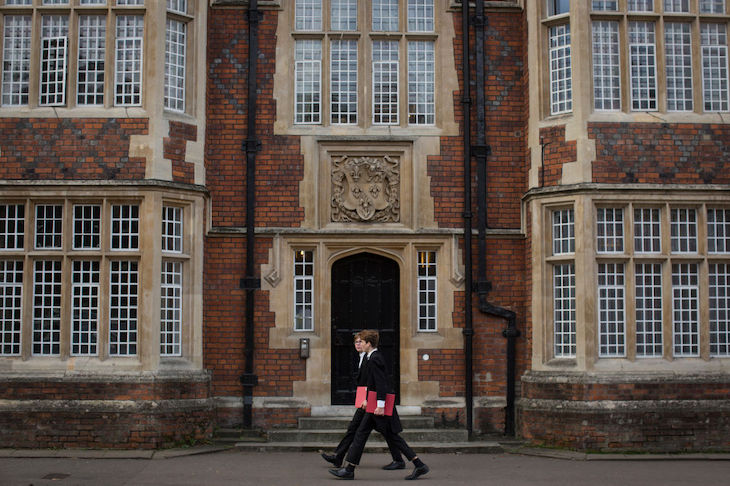The Sutton Trust’s recent report – on the privately-educated dominating prestigious jobs by a scale of five to one – is an important read. The study highlights how critical an independent school education was twenty years ago, especially for those now at the top of their chosen career paths.
This isn’t, however, particularly surprising. Back then, education in this country was in a rut; a tired out, laurel-resting, old boys’ club at one end of the spectrum; and the dregs of a union-dominated, ‘bog-standard comprehensive’ state sector at the other. Both ends of the spectrum were equally complacent, equally dominated by the past, equally lazy in their approach and equally unwilling or unable to contemplate change or improvement.
The revolution in education started by Andrew Adonis and then taken forward by Michael Gove has succeeded in changing all that. But not enough. It is a disgrace that in our country, one of the most advanced in the world, if your parents did not go to university there is an 80 per cent chance you will never go yourself.
But thanks to the shake-up of the education system over the past twenty years, there is a new cohort of state schools supporting children who past generations would have left behind. In the Harris Federation chain of academy schools which I manage, there are 51 students with Oxbridge offers this year. All of these sixth formers have faced disadvantage and are a truly diverse group of teenagers from all over London.
We have helped them beat the odds because we have disrupted the system – creating a highly academic – but free of charge – sixth form in partnership with the independent Westminster School. We have developed sixth forms in schools that didn’t have them, and not been scared to insist that our students work hard, learn the basics and then excel in their subjects.
But we also have to fight the system. For every open door at an Oxbridge college, there are five that need to be kicked down. For every employer that wants to engage with work experience, there are hundreds that won’t or are scared to do so. And for every complacent, jobsworth headteacher who has spent decades telling pupils there’s no point trying for the best universities because they’ll never get in, we have recruited a generation of teachers – many of whom are from equally diverse backgrounds – to tell our students that the system can be beaten.
There is still a long way to go. But the changing needs of society may be on our side.
One would hope that the world of newspaper columnists, public body chairs and even diplomats and politicians (four of the careers highlighted in the Sutton Trust report) will become more open to the next generation. But what this country needs more than anything is a brilliant generation of private sector entrepreneurs: educated, creative, open-minded and forward thinking. Those who will build on the UK’s new corporate strengths in AI, pharma, online retail, tech, new agriculture, the environment, science and the arts.
So yes, we should be concerned by the predominance of the independently-educated in the so-called elite professions. As a nation we need to do everything we can to help students like ours infiltrate and become established in these careers. But we should also be giving our children and teenagers the incentives and help they need to make the most of their talents and give Britain the creative and entrepreneurial shot in the arm it needs at this time.
Sir Dan Moynihan is CEO of the Harris Federation






Comments